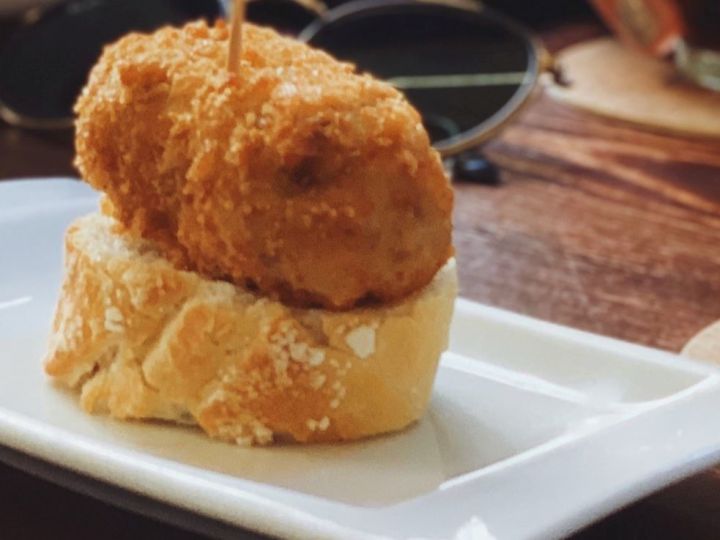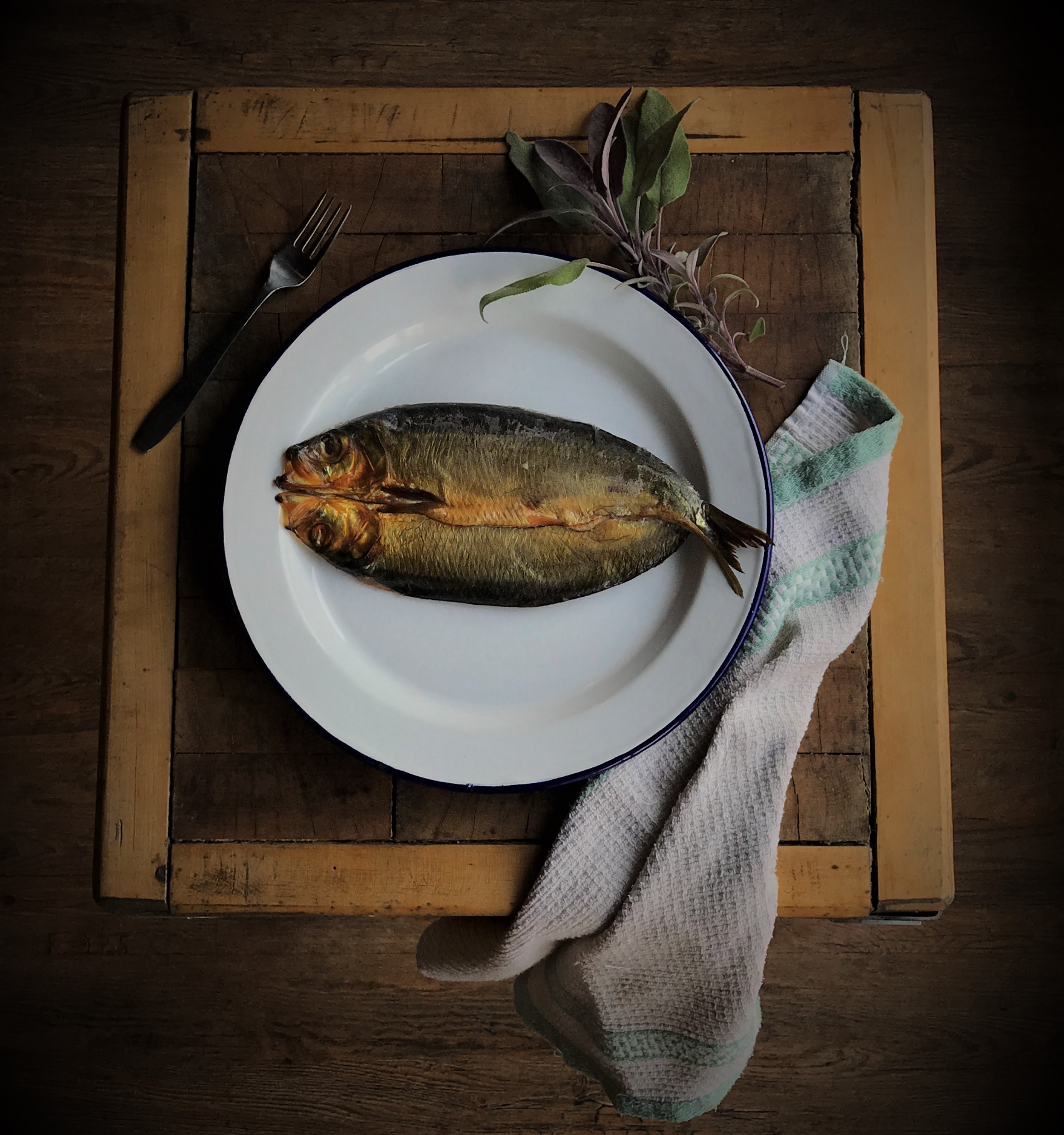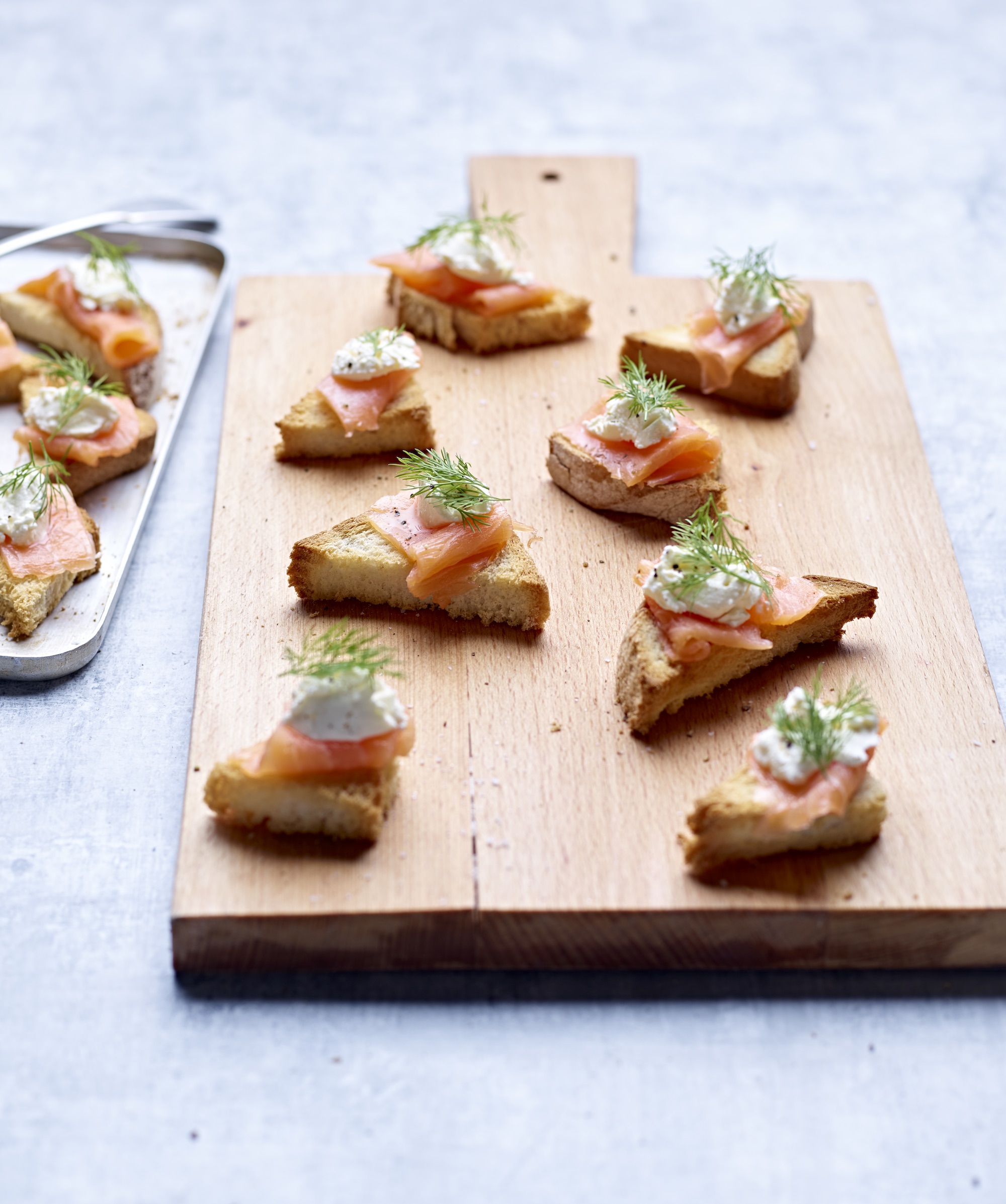Crisp Croquetas with Sardines and Parmesan
Whip up a taste of the Mediterranean with these crispy little tapas bites. You might expect them to be made with mashed potato, but actually, the inside is béchamel sauce, making these light and gooey when cooked. They’re delicious eaten with a glass of chilled white wine and are easy to make in advance, so you just have to fry them up before serving them crunchy and hot.
Crisp Croquetas with Sardines and Parmesan
Whip up a taste of the Mediterranean with these crispy little tapas bites. You might expect them to be made with mashed potato, but actually, the inside is béchamel sauce, making these light and gooey when cooked. They’re delicious eaten with a glass of chilled white wine and are easy to make in advance, so you just have to fry them up before serving them crunchy and hot.
- Serves: 4
- Prepare: 20 Minutes
- Cook: 5 Minutes
- Difficulty: easy
WHO ARE THE ORGANIC BUTCHERY?
Starting life as an organic farm in the heart of the West Country, The Organic Butchery is proudly founded on a long history of organic principles. We source the best quality organic grass-fed and wild meats, sustainable fish and organic free-range poultry from trusted local suppliers and like-minded brands to guarantee the highest standards of animal welfare and environmental stewardship. Our mission is to approach butchery with a whole-carcass perspective, to make the most of every animal that crosses our blocks, which means we offer you cuts that you will never see on the supermarket shelves.
WHAT IS SUSTAINABLE FISH?
Working with carefully chosen suppliers, we have focused on providing fish that we are able to keep in stock throughout the year. As with all of our produce, it’s paramount that it’s sustainably sourced. For the management of our marine ecosystems, in order to respect fish levels and ensure overfishing doesn’t occur.
Ingredients
- 120g can of sardines, drained
- 30g unsalted butter
- a generous handful of chives, finely chopped
- 30g cornflour
- 250ml full-fat milk brought to just below the boil
- freshly grated nutmeg
- 1 egg, beaten
- 100g panko breadcrumbs
- 20g parmesan, finely grated
- vegetable oil for frying
- salt and pepper to season
Method
- Gently melt the butter over a medium heat until it is frothy, taking care not to let it go brown. Remove from the heat and quickly whisk in the flour, making a smooth paste. Return to the heat for a couple of minutes, stirring constantly, to cook the flour through.
- Still on the heat, add a splash of hot milk to the flour mixture, whisking briskly to slacken it off. Gradually add the rest of the milk, whisking constantly to avoid lumps, until the sauce is smooth and quite thick. Season with nutmeg, salt and pepper then remove from the heat. Flake the sardines and stir them through the sauce along with the chives. Set aside to cool, laying cling film over the surface of the sauce to stop a skin forming.
- Set out 3 bowls: 1 for the cheese, 1 for the egg and 1 for the breadcrumbs. Once cooled, the sauce will have set to a mould-able consistency. Divide it into 8 portions and roll them into cylinders. Roll each cylinder firstly in cheese, then in egg, then in breadcrumbs. Lay on a tray lined with greaseproof paper and pop into the fridge.
- When you’re ready to cook your croquetas, pour a layer of oil about 6cm deep into a saucepan and heat to 180˚C (at which point a cube of bread will sizzle and turn brown). Cook in a couple of batches and serve while still warm.
WHO ARE THE ORGANIC BUTCHERY?
Starting life as an organic farm in the heart of the West Country, The Organic Butchery is proudly founded on a long history of organic principles. We source the best quality organic grass-fed and wild meats, sustainable fish and organic free-range poultry from trusted local suppliers and like-minded brands to guarantee the highest standards of animal welfare and environmental stewardship. Our mission is to approach butchery with a whole-carcass perspective, to make the most of every animal that crosses our blocks, which means we offer you cuts that you will never see on the supermarket shelves.
WHAT IS SUSTAINABLE FISH?
Working with carefully chosen suppliers, we have focused on providing fish that we are able to keep in stock throughout the year. As with all of our produce, it’s paramount that it’s sustainably sourced. For the management of our marine ecosystems, in order to respect fish levels and ensure overfishing doesn’t occur.
Frequently asked questions
-
There is a wide spectrum of ways that fish can be caught or farmed, certification schemes help you identify which standards the fish you are buying has been subject too. At Coombe Farm Organic we stock sustainable fish – all either organically certified or approved by the Marine Stewardship Council (MSC). The Marine Stewardship Council (MSC) is an independent non-profit organization which sets a standard for sustainable fishing, look out for their blue label on fish products which reassures you it was caught by a responsible fishery in a sustainable way, ensuring healthy oceans and safeguards seafood supplies for the future.
-
Wild caught fish is not organic as there is no way to control fish movement, diet or exposure to contaminants.
-
We’ve become a little bit set in our ways over the years with our ‘go-to’ fish choices; cod, haddock, tuna, salmon and warm-water prawns, but this has really jeopardised their sustainability. There are many alternative species available for us to try that have been farmed or caught responsibly, hake, corley, rainbow trout, mackerel and rope grown mussels are all great choices of sustainable fish in the UK.
-
Sustainable fishing is important in the management of our marine ecosystems, in order to respect fish stock levels and ensure overfishing does not occur. With fish being one of the most popular choices of animal proteins at mealtimes, its no wonder that popular fish species such as cod are in decline. Overfishing to meet the demands of the consumer have meant certain stocks of fish have gone into decline, the demand has been so high that the fish stocks have not be given time to replenish. It is said that 1/3rd of fish stocks are overfished, which really is quite shocking. Sustainable fishing allows fisheries to work closely with scientists to look at the patterns of growth and decline of fish stocks, these occur through births, deaths and migration. By analysing this data, the ‘maximum sustainable yield’ (this is how much a fish species can be fished before overfishing occurs) is calculated and this allows responsible fishing to occur, working with nature, instead of against it.




